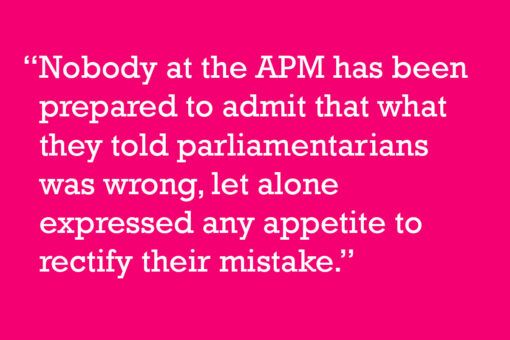Palliative medicine must engage honestly in the assisted dying debate

Twelve months is a long time when it comes to the issue of assisted dying and recent developments have prompted me to reflect on the role of palliative medicine in debates about end-of-life choice.
This time last year the House of Lords was preparing to consider Baroness Meacher’s Assisted Dying Bill. While that attempt to legalise assisted dying in England and Wales ran out of Parliamentary time progress is accelerating in other parts of the British Isles. Final proposals for a bill in Scotland have been lodged after a record breaking public consultation found over 75% of respondents backed a change in the law. Having already approved the principle of law change Jersey is now preparing to consider how assisted dying will work in practice and a consultation on the Isle of Man is planned.
Elsewhere in the world New South Wales has become the sixth and final Australian state to legalise assisted dying.
Over 200 million people around the world now have access to safeguarded assisted dying laws.
We have also witnessed a shift in the views of the medical profession in the UK. The Royal College of Physicians and British Medical Association have adopted neutral positons on assisted dying to reflect the views of their members and facilitate constructive engagement in debates. However, the organisation I belong to, the Association for Palliative Medicine (APM), which represents those practicing or interested in palliative medicine in Great Britain and Ireland, has remained implacably opposed to recent proposals.
The APM issued a briefing last year urging the House of Lords to reject Baroness Meacher’s Bill. While arguably the lack of balance in the APM’s briefing is unhelpful and unrepresentative, what I found most alarming was its inaccuracy. I am sharing a specific example after exhausting all other routes of trying to resolve my concerns with the APM’s leadership.
In its briefing the APM stated as fact that ‘jurisdictions worldwide that involve doctors directly in AD [assisted dying] have seen disinvestment in palliative care’. This troubling claim was echoed by the Bishop of Carlisle in the debate itself, but it is simply not true.
A 2018 report commissioned by Palliative Care Australia examined assisted dying in Europe, the USA and Canada and concluded there was ‘no evidence to suggest that palliative care sectors were adversely impacted by the introduction of legislation. If anything, in jurisdictions where assisted dying is available, the palliative care sector has further advanced.’ The recent passage of legislation in New South Wales was accompanied by a £400 million boost to palliative care services and similar commitments have been made by other Australian states.
I contacted the Executive Committee of the APM to ask what evidence they had seen to the contrary. I was sent a rudimentary bar chart, which I now know first appeared on Twitter via three anonymous accounts.*
This chart does not show that there has been any ‘disinvestment’ in palliative care where assisted dying is legal and nor does the 2020 study of European countries which is cited as the source of the chart’s data. One of the authors of that study has confirmed this to me.
Despite numerous requests sent to the President of the APM, as well as the Chairs of the Science and Ethics and Trainees Committees, who co-authored the House of Lords briefing, nobody at the APM has been prepared to admit that what they told parliamentarians was wrong, let alone expressed any appetite to rectify their mistake.
An email received by me in error sent by a senior consultant in palliative medicine, who has no formal role at the APM, sheds light on why this might be; it offered the following advice to the Executive for how to deal with my request for evidence: ‘When someone is being a pain in the a***, don’t be tempted to scratch!’. This correspondence is perhaps an indication that the toxic culture within the APM that five anonymous palliative care consultants expressed concern about in 2019 has not yet been addressed.
With law change across the British Isles on the horizon the APM will no doubt write further briefings for Parliamentarians. Beyond that, individuals in the end-of-life sector will have to consider for themselves what role they want to play in supporting or not supporting dying people to access assisted dying once legislation is implemented. If the APM wishes to hold on to the trust of the profession and have a credible role in this debate, then it must, like other professional organisations, act with honesty and respect for the truth. It appears to have to rejected this approach thus far, to the disservice of APM members and, more importantly, to the dying people for whom they care.
*@wwwKADOHuk, @Medic11358726 and @MedicsOutOfAD. The chart subsequently appeared on the website of an anti-assisted dying Parliamentary group (https://www.dyingwell.co.uk/when-assisted-suicide-is-legalised-development-of-palliative-care-stalls).